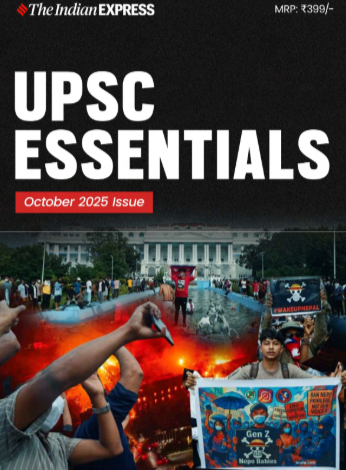
Why in the news?
The Delhi High Court on Monday set aside a 2016 order by the Central Information Commission (CIC) that had directed Delhi University (DU) to disclose details of Prime Minister Narendra Modi’s degree in response to an RTI application.
Story continues below this ad
Noting that there lies a “special relationship of trust and confidence” between a student and a university which is fiduciary in nature, the court held that information pertaining to an individual’s educational qualifications — including degrees and marks — falls within the ambit of “personal information” under provisions of the RTI Act. In this context, let’s know about the RTI in detail as this year it also completes 20 years.
Key Takeaways :
1. Right to Information is a part of fundamental rights under Article 19(1) of the Constitution. Article 19 (1) says that every citizen has freedom of speech and expression.
2. As early as in 1976, the Supreme Court said in the case of Raj Narain vs State of UP, that people cannot speak or express themselves unless they know. Therefore, right to information is embedded in article 19.
Right to Information Act, 2005
3. The RTI Act, seen as a significant development towards freedom of information, came into force in October 2005. The RTI Bill was introduced in Parliament in December 2004, and was passed by the Lok Sabha on May 11, 2005, and by the Rajya Sabha the next day.
Story continues below this ad
4. Notably, the legislation was first brought by the Union government in 2002 as the Freedom of Information (FOI) Act. However, the government did not frame the rules for it, and hence the Act never got implemented. Later a Bill was prepared to enact the RTI Act, which eventually came into implementation on October 12, 2005.
5. When India framed the RTI Act, India became one of the few countries to have such a legislation. While the first such law was implemented in Sweden in 1766, the US brought in one in 1966, while the UK enacted a law to this effect in 2005, like India. Since then, several countries have followed suit, with nearly 120 now boasting of similar legislation.
6. The RTI Act gave ordinary citizens the right to request information from government bodies, making authorities accountable for their actions and decisions. As a result, RTI is seen as a tool for citizens’ empowerment, promoting democratic participation, and improving the transparency and accountability of public officials.
Central Information Commission
7. The RTI Act, 2005, provided for a Central Information Commission and State Information Commissions to deal with appeals and complaints against public authorities.
Story continues below this ad
8. Section 12 of the RTI Act states, “The Central Information Commission shall consist of the Chief Information Commissioner (CIC), and such number of Central Information Commissioners, not exceeding 10, as may be deemed necessary.”
9. The 2019 amendments to the RTI act altered the terms, tenure, and emoluments of the CIC and Information Commissioners (ICs). The original Act placed CIC and ICs on parity with equivalent ranks in the Election Commission of India, an autonomous constitutional authority where commissioners enjoy a fixed tenure of five years, and could only be removed under specific conditions.
10. The 2019 Amendment removes equivalence with the Election Commission, and gave the government control over the tenure, emoluments and terms of appointment of CIC and ICs,
11. The jurisdiction of the CIC extends over all Central Public Authorities. The Commission has certain powers and functions mentioned in sections 18, 19, 20 and 25 of the RTI Act, 2005.
Story continues below this ad
12. The powers and functions of CIC broadly relate to adjudication in second appeal for giving information; direction for record keeping, suo motu disclosures receiving and enquiring into a complaint on inability to file RTI etc; imposition of penalties and Monitoring and Reporting including preparation of an Annual Report. The decisions of the Commission are final and binding.
13. Notably, CIC does not have jurisdiction over a State Information Commission nor a complaint or appeal can be filed in this Commission against an order of a State Information Commission.
Type of information may be obtained under the RTI Act
14. The type of information which may be obtained is defined under section 2 (f) of the Act as any material in any form, including records, documents, memos, e-mails, opinions, advices, press releases, circulars, orders, log books, contracts, reports, papers, samples, models, data material held in any electronic form and information relating to any private body which can be accessed by a public authority under any other law for the time being in force.
Public authorities exempt from providing information under RTI
15. Intelligence and security organizations specified in the Second Schedule to the Act are exempt from furnishing information under the Act. However, this exemption does not apply if the requested information pertains to the allegations of corruption and human rights violations.
Story continues below this ad
BEYOND THE NUGGET: Right to Privacy
1. In August, 2017, a nine-judge bench of the Supreme Court of India in K. Puttaswamy v Union of India Case ruled unanimously that “the right to privacy is protected as an intrinsic part of the right to life and personal liberty under Article 21 and as a part of the freedoms guaranteed by Part III of the Constitution”.
2. Justice Puttaswamy famously challenged the constitutional validity of the Aadhaar scheme, which led to the Supreme Court recognising the right to privacy under the fundamental right to life under Article 21 of the Constitution.
Post Read Question
Consider the following statements:
1. The RTI Act, 2005, provides for a Central Information Commission and State Information Commissions.
2. The decisions of the Central Information Commission are final and binding.
Story continues below this ad
3. The Central Information Commission has jurisdiction over a State Information Commission.
How many of the statements given above are correct?
(a) Only one
(b) Only two
(c) All three
(d) None
(Sources: PM Modi’s degree is ‘personal information’, Delhi University does not have to disclose: High Court, RTI Act, Tracing the roots and impact of Right to Information Act, cic.gov.in, niepvd.nic.in)
Subscribe to our UPSC newsletter. Stay updated with the latest UPSC articles by joining our Telegram channel – Indian Express UPSC Hub, and follow us on Instagram and X.
🚨 Click Here to read the UPSC Essentials magazine for August 2025. Share your views and suggestions in the comment box or at manas.srivastava@indianexpress.com🚨
































